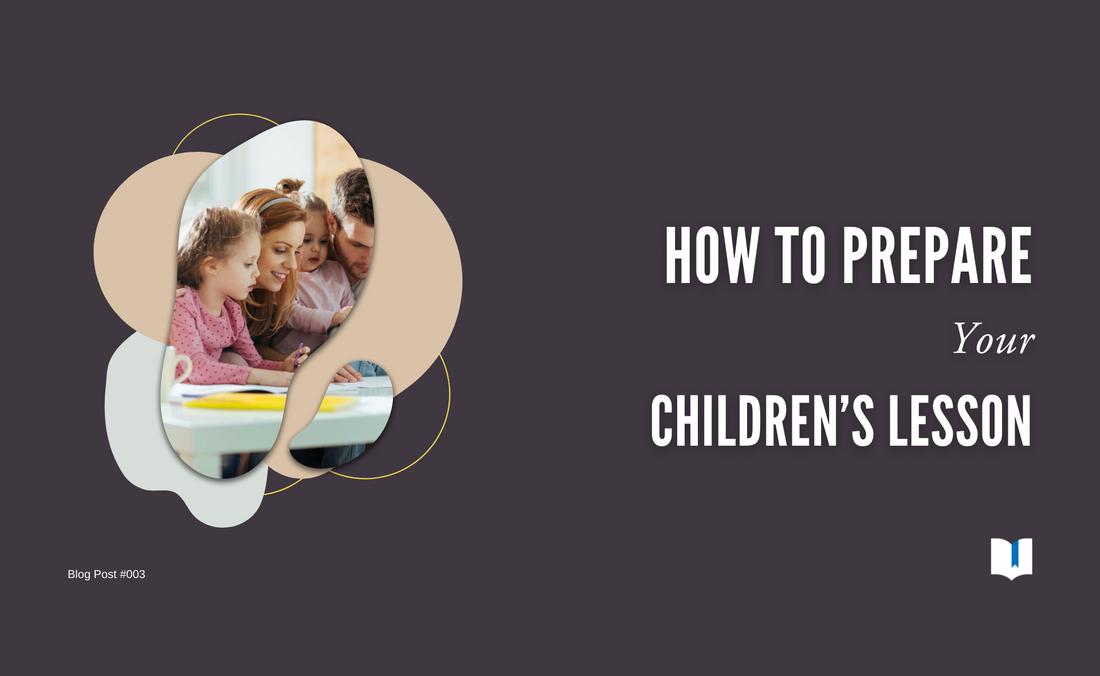
How to Prepare Your Children’s Lesson
Share
If you teach the Bible to children, God has afforded you a marvelous privilege and responsibility. But how can you grow in your skillfulness and devotion when you teach? One place to start is your preparatory study. When you study prayerfully and diligently, you are mining the treasures of God’s Word. Out of these treasures comes your children’s lesson. Here is a practical approach to help you improve your study of God’s Word.
Approach your preparation as an opportunity for personal growth and worship. You cannot teach others (children included) what you have not learned yourself. Maintain an attitude of prayer and thanksgiving throughout your study, and as God opens your heart to the truth, you will discern what to teach your kids. During your preparation, challenge yourself to learn. Do not be content with your current knowledge. Above all, seek to know God who reveals Himself in Scripture (Ps 119:2; John 17:3).
Your first task in preparing any Bible lesson is to read the text of Scripture in its context. Before you run to accompanying resources, familiarize yourself with the text of Scripture. God speaks through His Word, and your goal is to communicate His Word to your kids. If the lesson is a biblical narrative, take time to read the story within its context. You might have to read multiple chapters or the entire book. If the lesson focuses on propositional doctrine, you will need to read several passages across the Bible in their specific contexts. Take each Bible passage in turn until you can identify the central truth of the lesson.
Once you have thoroughly read the lesson’s text(s), work to understand what the text means. Teaching is not simply repeating what the Bible says. Teaching is communicating what the Bible means by what it says in language that your audience can understand. So take time to interpret the text rightly. Start by asking questions: What truth is communicated? Why is this story in the Bible? What does this text say about God, mankind, sin, or salvation? If you can answer these questions by pointing to Scripture to back up your answers, then you are on the right track.
At this point in the process, use helpful resources. If you are using a children’s curriculum like Generations of Grace or Adventure Club, read the teacher’s commentary on the lesson. A Bible with cross-references or study notes can also improve your study. Take advantage of these materials and push yourself to grasp what the text means—what God intended the original audience to understand by the words. Once you have learned the meaning, thank God for His revelation, and pray for wisdom to apply it.
Your final task in preparation is not easy. After reading and interpreting the text, you must answer two questions: How do I communicate this to my kids, and why does this truth matter for them? You are not in a theoretical vacuum; you are studying for them. You know each child, and in God’s providence, you have the privilege to teach them.
To teach clearly, you must communicate simply. Don’t chase every truth in the text but bring out the rich jewels you mined in your study and let them look. Use illustrations to your advantage. If you are using a curriculum, examples are often provided for you. Use what is helpful and discard the rest. If you are using Generations of Grace or Adventure Club curriculum, extra illustrations are provided in our Teaching Tips and Moment of Truth videos. Keep in mind, a good illustration never distracts from the meaning of a text; instead, a good illustration displays the meaning.
Finally, you must answer the “So what?” question. Why is this truth important? Why is it essential for your kids? While the meaning of the text does not change, its significance in our lives is multi-faceted. While maintaining the meaning of Scripture, take time to connect its relevance to the lives of your children.
When you teach, you may not be able to apply the text specifically to each one, primarily if you teach in a large group setting. But you can pray for each child. Thank God for the opportunity to study His Word and then pray for your kids. Pray that God will apply His Word to each heart just as you have sought to apply the lesson to your own heart during your study.
